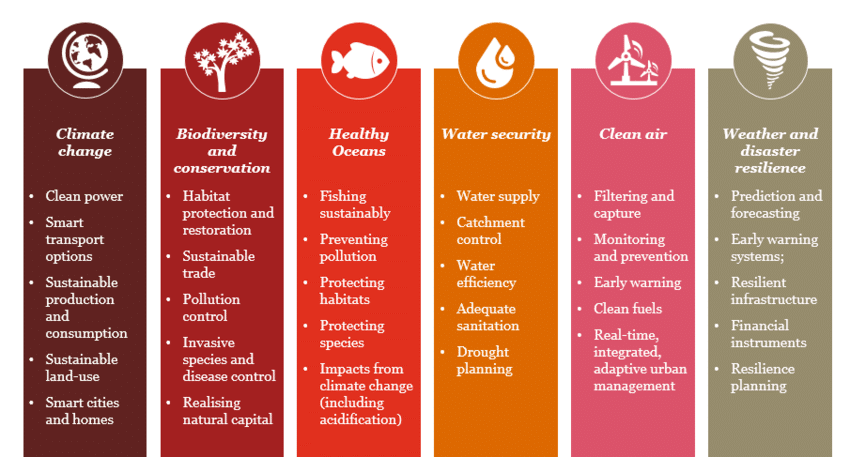Connect with us
Let us help you become hyperagile.
Let us help you become hyperagile.

Artificial Intelligence is progressing due to the increasing demand for businesses to be more efficient with their processes and outputs. AI has been at the forefront of this century’s technology advancements through its application in what once were unthinkable systems like summoning Alexa to play your Spotify playlist for you.
While AI contributes to businesses’ productivity by streamlining processes, mitigating errors and risks, and increasing work volume, it raises important questions and concerns about its effects on society. Some would even argue that AI is a threat to human capital. An even more pressing issue is technology’s role in climate change and biodiversity loss.
Over the years, technology advances have played an important role in improving the quality of human life. All these enhancements contributed to economic growth but at the same time have negatively impacted our planet. While IgnitusAI is all for hyperagility and being quick to respond to change, we acknowledge the importance of addressing the deteriorating health of our environment. We believe that AI technology can reform the whole landscape altogether and truly drive this advocacy forward with the help of data, solutions backed by human intelligence, and genuine thirst for positive change.

In PwC’s research on “How AI Can Enable A Sustainable Future”, they have laid out scientific evidences that Earth systems are under unprecedented environmental stress:
All these are serious impacts on the planet brought about by human activity that need to be reversed urgently. Artificial Intelligence, when harnessed the right way, is considered to have a pivotal role in transformational efforts to solve the world’s most pressing environmental challenges. AI can potentially drive global environmental efforts forward by C02 removal, developing green urban mobility, precise extreme weather condition monitoring for better disaster response, monitoring deforestation, and energy emission reduction detection.
Here are more examples of how AI can be a vehicle to achieve environmental sustainability.

Figure 1: Priority action areas for environmental challenges; Image Source: PwC
Some companies took advantage of AI capabilities in their efforts to create environmental change:
IgnitusAI triggers and executes transformations that help businesses become hyperagile, empowering them to identify options and seize opportunities while keeping the future generations and the whole environmental landscape in mind. We focus on longevity, sustainability, and future-proofing your solutions and strategies.
In operations, your sustainability is your accountability for social and ecological impacts around you, and accurately reporting your activities in those regards to your stakeholders; and the key to your sustainability strategy is auditable data availability. We can help you harness more AI and operate more sustainably.
For more information, visit www.ignitus.ai